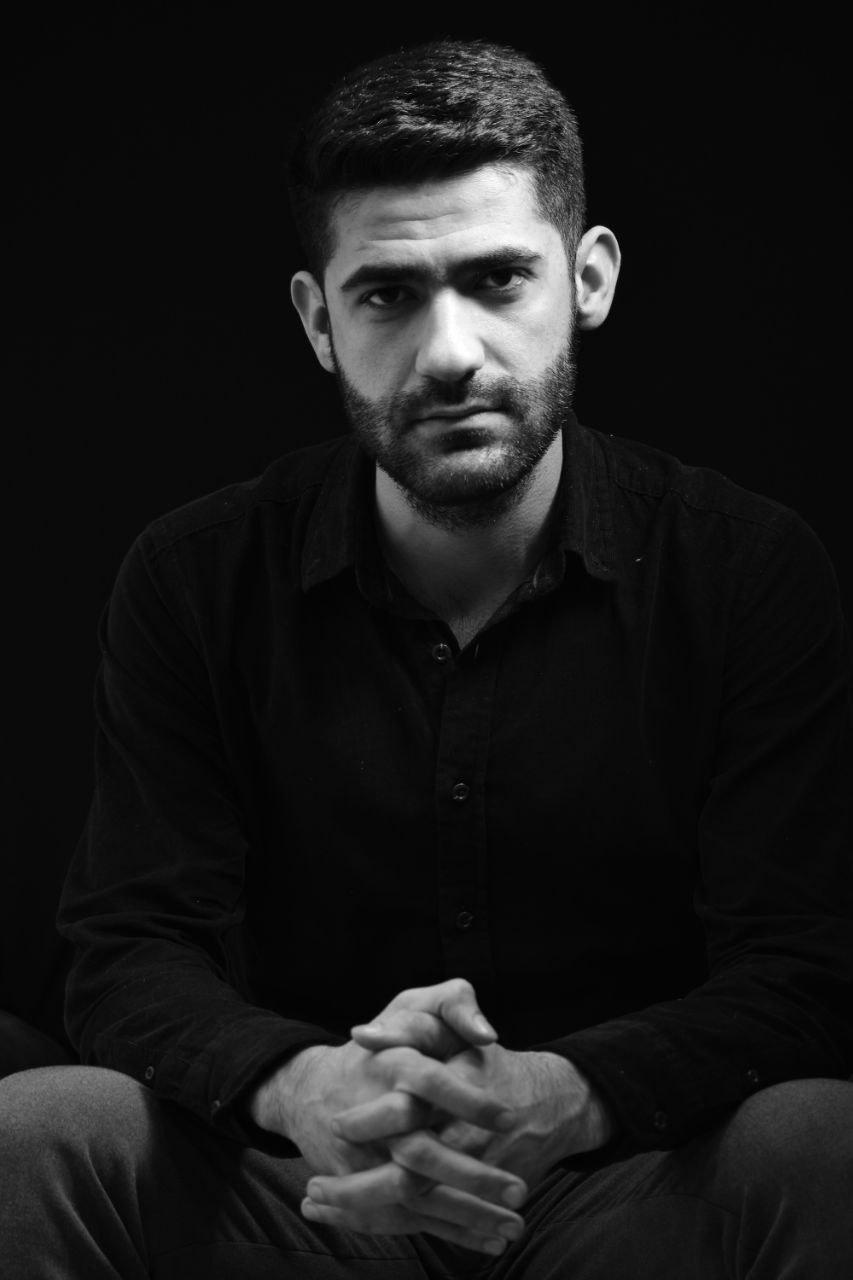"مسلحون بشهادات جامعية.. ولكنهم عزل في سوق العمل!"، هكذا يمكن وصف واقع كثير من خريجي كليات الإعلام في العراق، الذين يجدون أنفسهم أمام تحديات غير متوقعة بعد سنوات من الدراسة الأكاديمية؛ فبينما يحملون أحلاما وطموحات كبيرة لبناء مستقبل مهني ناجح في مجال الإعلام، يصطدمون بواقعٍ معقد موسوم بالتطور التكنولوجي واتساع الفجوة مع سوق العمل.
في عصر تهيمن عليه الصحافة الرقمية ووسائل التواصل الاجتماعي، لم تعد الشهادة الجامعية وحدها كافية لضمان فرصة عمل في قطاع الإعلام؛ فالمهارات التقليدية في الكتابة والتحرير والتقديم الإذاعي والتلفزيوني، وإن كانت لا تزال مهمة، فإنها تحتاج إلى التكامل مع مهارات رقمية جديدة لمواكبة متطلبات العصر.
أزمة المناهج
في الساعة التاسعة صباحا، تبدأ محاضرة في كلية الإعلام، يلقي فيها أستاذ المادة محاضرة تعتمد على مناهج قد صدرت قبل ثماني سنوات من تلك اللحظة، وبينما ينصتُ الطلاب للمحاضرة بإمعان، تتطور الصحافة في مكان آخر من العالم.
تعتقد الدكتورة سحر خليفة، أستاذة الصحافة الاستقصائية في الجامعة العراقية، أن المناهج الدراسية "تعتمد نمطا موحدا في المفردات والمناهج الدراسية، يُقَرّر ويُطوَّر من قبل لجنة خاصة داخل وزارة التعليم العالي. صحيح أن هذه الآلية تضمن وجود معايير موحدة للتعليم الإعلامي في مختلف الجامعات، ولكنها في الوقت ذاته تُعاني من جمودٍ في عملية التطوير والتحديث."
وتضيف الدكتورة خليفة: "طموحنا بوصفنا أكاديميين وأساتذة إعلام يتجاوز مجرد إلحاق المناهج بتطور تكنولوجيا الاتصال والمعلومات، بل نسعى إلى تجاوزها؛ ففي كل يوم تظهر وسائط رقمية جديدة، وتتطور أدوات الإعلام، ويظهر محتوى إعلامي بقوالب مبتكرة. هذا يستدعي تحديثا دوريا للمناهج، لا بل مع كل عام دراسي، حتى نضمن تخريج إعلاميين قادرين على العمل بفاعلية في هذا المشهد الإعلامي المتجدد."
وترى الدكتورة خليفة أن التحديث يجب أن يشمل أيضا طرائق التدريس، بما يتلاءم مع طبيعة المناهج الإعلامية الحديثة.
تعتقد الدكتورة سحر خليفة، أستاذة الصحافة الاستقصائية أن المناهج الدراسية "تعتمد نمطا موحدا في المفردات والمناهج الدراسية، يُقَرّر ويُطوَّر من قبل لجنة خاصة داخل وزارة التعليم العالي. صحيح أن هذه الآلية تضمن وجود معايير موحدة للتعليم الإعلامي في مختلف الجامعات، ولكنها في الوقت ذاته تُعاني من جمودٍ في عملية التطوير والتحديث".
قضية المناهج العتيقة تشغل أساتذة الكليات في الجامعات العراقية لتأثيرها المباشر على جودة التعليم، وهكذا يرى الدكتور علي مولود فاضل، رئيس قسم الإعلام في جامعة سامراء، أن هذه المناهج "تحاول تلبية الحاجة، ولكن هذه المحاولة لا ترقى إلى الواقع الحقيقي والتطبيقي الذي يتطلبه سوق العمل". ويُرجع فاضل هذا القصور إلى تركيز المناهج على الأدبيات النظرية على حساب الجانب المهني، معتبرا أن "مهنة الإعلام بمشاربها المختلفة تتطلب مهارات ميدانية تمكن الخريج من مزاولة المهنة بفاعلية، وهذا ما تفتقده مناهج الإعلام العراقية في عدة مواطن، ولا سيما عدم القدرة على الانفتاح على التجارب الأخرى".
ولعل عدم إشراك المهنيين أو الصحفيين المحترفين هو المعضلة الأساسية التي تعاني منها الجامعات، فوفقا لفاضل، فإن "عدم إشراكهم يُعد تحديا حقيقيا يُضاف إلى ضعف بعض المناهج، مع التأكيد أن جامعة بغداد انفتحت على المؤسسات في فرنسا، أو في قطر وتحديدا في شبكة الجزيرة الإعلامية، فضلا عن شبكة الإعلام العراقي التي سبقتها جهود شملت تحديث المواد المعرفية وتطويرها لمناهج كليات الإعلام وأقسامها في العراق، الصادر قبيل ثماني سنوات، والذي جرى التعديل عليه وإدخال مفردات جديدة عليه، إضافة إلى ما أقرته لجنة العمداء في اجتماعها الأخير قبل بضعة شهور".
شهادة، ولكن..
فجوة المهارات بين الخريجين وسوق العمل.. "من أين أبدأ؟" هو سؤال يواجه جيلا من الخريجين.
في اليوم الأول بعد تخرجه، يفكر حامل شهادة كلية الإعلام في البحث عن وظيفة، ويجد نفسه في مقابلة عمل، وقد تلقى أسئلة لا يمكنه الرد عليها. يسأله مدير الموارد البشرية عن قدرته على العمل على الأدوات الحديثة، ويدرك المتقدّم حينئذٍ الفجوة بين ما تعلمه من المناهج الدراسية وما يطلبه منه سوق العمل.
"من أين أبدأ؟" سؤال يتردد على ألسنة جيلٍ من الخريجين، يجسد حجم المعاناة التي تواجههم في سعيهم لدخول معترك يحتاج إلى مهارات متجددة دائما.
مصطفى جمال، طالب في المرحلة الرابعة بكلية الإعلام في جامعة بغداد، يعبر عن إحباطه إزاء فقر الأدوات التي امتلكها خلال مسيرته التعليمية.
"لم أتقن أساسيات كتابة القصة الصحفية ولا المهارات التقنية. أشعر بأنني أفتقر إلى الأدوات التي تمكنني من التفكير في تقديم نفسي وخدماتي للمؤسسات الإعلامية".
ورغم المحاولات المتقطعة التي تبذلها كلية الإعلام للتطوير، مثل برامج تبادل الخبرات والزمالات مع مؤسسات إعلامية دولية، إلا أنها، كما يقول مصطفى، تظلّ محاولات قليلة ولا تغطي حاجة الطلاب الفعلية للتعلم، "ولا سيما أن عددا قليلا فقط من يستفيد من هذه البرامج؛ لذلك لا يبقى لنا سوى الاجتهاد الشخصي أو المشاركة في الورش التدريبية التي تقدمها مؤسسات مختلفة".
"تخرجت منذ عامين، وما زلت أبحث عن فرصة!" هكذا تختصر ياسمين محمد، خريجة كلية الإعلام بجامعة الفارابي، منذ عامين، معاناتها في سوق العمل قائلة لمجلة الصحافة: "بعد سنوات من الدراسة والاجتهاد، تجد نفسك فجأة في مواجهة واقع مرير، يشعر فيه الخريج بأن شهادته الجامعية لا تساوي شيئا في سوق عمل يشترط خبرة سنوات طويلة، وكأن الخريج يجب أن يخلق هذه الخبرة من العدم".
"لقد قدمت عشرات الطلبات لمؤسسات إعلامية مختلفة ولكن قوبلت بالرفض، إما لعدم وجود شاغر، وإما لأنني لا أمتلك الخبرة الكافية. أشعر بأنني أضيع وقتي وطاقتي في البحث عن عمل لا أجده، وبأن أحلامي في أن أُصبح إعلامية وصحفية ناجحة تتبخر يوما بعد يوم". هكذا تعبر ياسمين عن واقع سوق عمل يطلب الخبرة وأعمالا سابقة من طالب لم يمارس الصحافة يوما.
"بعد سنوات من الدراسة والاجتهاد، تجد نفسك فجأة في مواجهة واقع مرير، يشعر فيه الخريج بأن شهادته الجامعية لا تساوي شيئا في سوق عمل يشترط خبرة سنوات طويلة، وكأن الخريج يجب أن يخلق هذه الخبرة من العدم".
في صيف عام 2024، أطلقت شركة فاصلة للحلول التسويقية في البصرة تدريبا صيفيا، في محاولة للاشتباك مع خريجي كليات الإعلام الجدد، والبحث عن كوادر جديدة يمكنها أن تنضم لفريق الشركة، ولكن المفاجئ أن الشركة لم تجد خريجا واحدا من كلية الإعلام قادرا على الانضمام للفريق والانسجام معه.
يقول محمد صباح مؤسس شركة فاصلة ومديرها: "من المفارقة أننا في فاصلة لم نعين أي موظف حامل لشهادة كلية الإعلام، ومعظم الذين حصلوا على وظيفة في الشركة كانوا من خريجي الهندسة أو إدارة الأعمال، وحتى العلوم الإنسانية".
ويرجع صباح هذا الأمر إلى افتقاد طالب كلية الإعلام لمهارات العمل والتواصل. "دائما ما نصطدم بمُتخرج يظن أنه متعلم جيدا ويمتلك كل العلوم التي تساعده على الانخراط في المجال، وعلى العكس من ذلك، تجد المؤسسة نفسها غير قادرة على الاستفادة من المهارات والمعارف التي يمتلكها والتي تظل عتيقة".
ولا يتوقف الأمر عند هذا الحد، فوفقا لصباح فإن الطالب "يفتقر إلى القدرة على التعلم أو الرغبة فيه، بل يظهر كأنه غير مدرك للتحديات التي تحيط به في المجال، ويفكر في الانتقال لوظيفة حكومية لا تتطلب هذه المتطلبات العالية، ولا حتى شرط التعلم".
ويمكن تلخيص تلك المهارات المفقودة لدى حامل شهادة كلية الإعلام العراقي، كما يراها صباح، في خمس نقاط: ضعف التواصل، وضعف الذكاء العاطفي في محاولة فهم الآخر والقدرة على العمل داخل الفريق الواحد، وعدم القدرة على تحمل ضغوط العمل، وعدم الرغبة في مواكبة تطورات العمل ومحاولة التعلم المستمر، والشعور الدائم بتضخم الذات والبحث عن آفاق خارج التسلسل الزمني الوظيفي المنطقي.
"يعاني الطلبة من ضعف مهارات أساسية مثل التواصل، وضعف الذكاء العاطفي في محاولة فهم الآخر والقدرة على العمل داخل الفريق الواحد، وعدم القدرة على تحمل ضغوط العمل، وعدم الرغبة في مواكبة تطورات العمل ومحاولة التعلم المستمر، والشعور الدائم بتضخم الذات والبحث عن آفاق خارج التسلسل الزمني الوظيفي المنطقي".
ولتفعيل التعاون بين الأكاديمية وسوق العمل في مجال الإعلام، يقترح الدكتور علي مدلول "تقليل البيروقراطية وإعطاء بعض الصلاحيات للكليات والأقسام المختصة بالإعلام في عقد مذكرات التعاون والتفاهم، وتبادل الخبرات، وحتى استقطاب الملكات المحترفة من المؤسسات الرصينة، وهي خطوات من شأنها أن تسهم في تطوير معارف التدريس ومهاراته".
كما يرى الدكتور مدلول أن من الضروري "تخصيص مبالغ مالية للموهوبين والمتميزين من الطلبة، تمنحها ميزانية الدولة، يرسل خلالها الخريج إلى المؤسسات الرصينة ليتدرب، ويعود إلى العراق ويزاول عمله ويسهم في تدريب الآخرين".
إعادة تصميم التعليم الإعلامي
هكذا تتفق التوصيات بشأن رغبة كل الفاعلين في العملية التدريسية في تطوير مناهج التعليم داخل كليات الإعلام؛ إذ تجتمع رغبة الطالب في تعلم مهارات حديثة تضمن له مكانا في سوق العمل، ورغبة أصحاب الشركات والمؤسسات الإعلامية في الحصول على موظفين بمهارات عالية، ورغبة الأساتذة في تقديم مقترحاتهم لتطوير المناهج الإعلامية.
يقترح الدكتور هوشيار مظفر علي أمين، الأستاذ في جامعة صلاح الدين في محافظة أربيل، إنشاء مراكز تدريب إعلامي داخل الجامعات، وتصميم برامج تدريبية مشتركة بين الجامعات والمؤسسات الإعلامية، وتطوير المناهج بِالشراكة مع سوق العمل، وتحفيز البحث العلمي التطبيقي في الإعلام، إلى جانب تنظيم فعاليات ومؤتمرات مشتركة، ودعم ريادة الأعمال الإعلامية وتطوير نظام تدريب داخلي (Internship) متقدم".
كذلك يعتقد بأهمية التقييم المستمر لكفاءة المناهج والتعاون مع سوق العمل، من خلال إجراء استبيانات دورية لقياس رضا المؤسسات الإعلامية بشأن مخرجات التعليم، ومراجعة المناهج دوريا لضمان مواكبتها للتطورات الإعلامية.
لا نعثر على إحصاءات دقيقة عن الخريجين من كليات الإعلام العراقي في المواقع الرسمية لفهم الاحتياجات على نحو أعمق، لذلك فإن بناء قاعدة بيانات شاملة لخريجي كليات الإعلام يعد خطوة ضرورية لتوفير معلومات موثوقة ودقيقة عن أعداد الخريجين، وتخصصاتهم، ومؤهلاتهم، ومهاراتهم. وستسهم هذه القاعدة في تمكين المؤسسات الإعلامية والجهات الحكومية من فهم واقع سوق العمل بصورة أفضل واتخاذ قرارات تسهم في تطوير قطاع الإعلام وخريجيه في العراق.








































